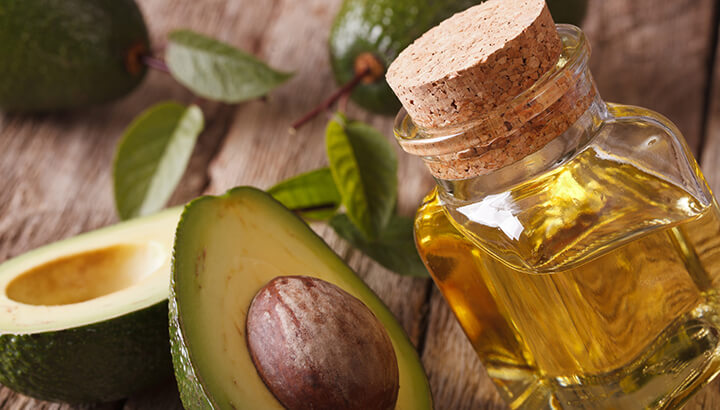
Most people know that processed foods are not healthy. Yet, many people eat them without a second thought. This is dangerous for many reasons. Processed foods contain a wide array of additives, preservatives and unhealthy ingredients that can contribute to chronic disease. If you eat these foods often, your are putting your health in jeopardy. Speaking of chronic disease… heart disease, as many of us know, is America’s number one killer. One oil found in many processed and fast foods could be one of the main contributors to this malady, and its precursor, atherosclerosis. I’m talking about hydrogenated and partially hydrogenated oil, also known as trans fat.
A bit about atherosclerosis
The National Institutes of Health (NIH) define atherosclerosis as “a disease in which plaque builds up inside your arteries.” If this plaque builds up chronically, it can harden. This causes the arteries to narrow, sometimes to the point where blood cannot flow freely through your body.
There are a number of dangerous and fatal conditions that atherosclerosis can lead to. Among them are heart attack, stroke, coronary heart disease, peripheral artery disease, carotid artery disease and chronic kidney disease, according to the NIH. Needless to say, this is one condition that you want to avoid. One big way to start is to remove trans fats from your diet completely.
What is trans fat?
Trans fats are made through a process of hydrogenation. This process involves chemically adding hydrogen into a polyunsaturated oil. Through the hydrogenation process, these oils become solid at room temperature. This is often done in food processing to extend the shelf life of fats, and because trans fats cost less than natural saturated fats. Trans fats also add a bit of flavor enhancement, giving processed foods some of their “processed” taste, which many people unfortunately find addictive.
Because of their chemically-imposed structure, which is different from that of other fats, trans fats are extremely difficult for the body to metabolize. For this reason, they often serve to plug up artery walls. From there, they are oxidized and contribute to atherosclerosis risk, as well as many other chronic illnesses.
The research
There is a great deal of research linking trans fats to atherosclerosis. The authors of a 2002 study published in the Journal of Lipid Research wrote:
“Consumption of diets high in hydrogenated fat/trans fatty acids has been shown to have an adverse effect on lipoprotein profiles with respect to cardiovascular disease risk. Dietary fat and cholesterol play an important role in the regulation of immune and inflammatory responses shown to be involved in atherogenesis.”
For their study, researchers analyzed the effects of diets high in trans fats on the inflammatory and immune responses of cells. The authors concluded that trans fat “increase production of inflammatory cytokines that have been associated with the pathophysiology of atherosclerosis.”
In another study published in 2003 in the journal Atherosclerosis, researchers put volunteers on one of six diets randomly. These diets included varying types of fats. Afterward, the researchers measured the fatty acid profiles of the volunteers’ blood. On their results, the authors wrote:
“These data suggest that, as previously demonstrated, the major CVD [cardiovascular disease] risk factor adversely affected by dietary trans fatty acids/partially-hydrogenated fat is LDL-cholesterol levels and total cholesterol/HDL-cholesterol ratios.”
On the subject of trans fats, the authors of a 2009 study published in the journal Atherosclerosis explained:
“They [trans fats] cause inflammation and calcification of arterial cells: known risk factors for coronary heart disease (CHD). They inhibit cyclooxygenase, an enzyme required for the conversion of arachidonic acid to prostacyclin, necessary for the regulation of blood flow… Epidemiological data suggest that when trans fat percentages go up and linoleic acid percentages go down, death rates rise; when trans goes down, death rates go down. Trans fat should be banned from the food supply.”
Furthermore, a 2013 study published in the American Journal of Cardiovascular Disease noted the consumption of trans fats as one of the main factors that “likely underlie the persistent national burden of heart disease.”
FDA bans some trans fats… but it’s not a perfect solution
In recent years, the United States government has taken some steps to minimize the amount of trans fats in our food supply. In 2015, the FDA ruled that trans fats are not “generally recognized as safe” for use in human food. They announced that food companies are to remove trans fats, in the form of partially hydrogenated oils, from food within three years.
On this decision, Dr. Steven Nissen, the Cleveland Clinic’s chair of cardiovascular medicine, stated:
“In many ways, trans fat is a real tragic story for the American diet. In the 1950s and ’60s, we mistakenly told Americans that butter and eggs were bad for them and pushed people to margarine, which is basically trans fat. What we’ve learned now is that saturated fat is relatively neutral. It is the trans fat that is really harmful and we had made the dietary situation worse.”
Sam Kass, the executive director of the Let’s Move! program, called the FDA’s announcement a “massive win for public health.”
While this is indeed progress, it’s not far enough. Food companies will still be able to apply for permits from the FDA to use partially hydrogenated oils in their products. Companies can get FDA approval for exceptions, even though these oils are not technically allowed in food after 2018. That in itself is scary.
What’s worse is that right now, foods can still contain some trans fat without having to show it on the label. According to the FDA:
“The Nutrition Facts label can state zero grams of trans fat if the food product contains less than 0.5 grams of trans fat per serving. Thus, if a product contains partially hydrogenated oils, then it might contain small amounts of trans fat even if the label says 0 grams of trans fat.”
Very tricky, indeed. This allowance may be corrected once law goes into effect, but it’s not certain.
What to avoid

If you want to avoid trans fats, watch out for any labels that say “hydrogenated oils” or “partially hydrogenated oils.” These may be most often present in processed goods such as cakes, crackers, frozen pizza crusts, coffee creamers, peanut butter, shortening and margarine. However, this is just the tip of the iceberg. These oils can appear in virtually any product. Your best bet is to say no to processed food altogether.
Also, it’s important never to reuse cooking oil (deep frying is one of the worst cooking methods for your health, anyway), as this may create trans fatty acids. If you’re eating at a restaurant, ask your server what types of oils are used in food preparation. Finally, skip the junk food and deep fried snacks — your heart will thank you.
Healthy replacements
So, you’ve decided to say no to trans fats. Most excellent! Here’s what to replace them with:
Coconut oil
Organic virgin coconut oil is one of the absolute best choices for your kitchen, and for your health in general. This oil is high in natural saturated fat — yes, it’s good for you! It also includes nutritious lauric acid and contains metabolism-boosting medium-chain fatty acids. Using this oil on a regular basis may help aid in weight loss. It may also improve your thyroid health and boost your cardiovascular health. Plus, it tastes amazing.
You can replace virtually all of the cooking oils in your home with coconut oil — in fact, I highly recommend it.
Avocado oil

This oil has the notable benefit of a high smoke point. It’s great for high-heat cooking, like sauteing and stir-frying food. Avocado oil is also high in natural saturated fat. It contains a wealth of nutrients including vitamins B5, B6, C, E, and K, along with folate and potassium. Like coconut oil, it is also amazing for your skin.
Extra virgin olive oil
For topping salads, spreads and fresh veggies, extra-virgin olive oil is excellent. This oil is a staple of the renowned Mediterranean diet. It’s also chock full of antioxidants. It contains oleic acid, which is linked to lowering blood pressure. This is a heart-healthy choice. However, buyer beware. Poor quality olive oils are all over the market, so make sure you buy from a trusted source.
So, there you have it! With all of the healthy oil options available, there is no reason to use the refined, processed stuff. After all, it does nothing but contribute to illness and endanger your heart. Wherever trans fats are concerned, just say no. There are no safe levels of these fats for the human body. Take care of your body and it will take care of you.
— Tanya Mead

